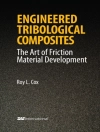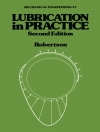The automotive industry faces constant pressure to reduce development costs and time while still increasing vehicle quality. To meet this challenge, engineers and researchers in both science and industry are developing effective strategies and flexible tools by enhancing and further integrating powerful, computer-aided design technology. This book provides a valuable overview of the development tools and methods of today and tomorrow. It is targeted not only towards professional project and design engineers, but also to students and to anyone who is interested in state-of-the-art computer-aided development.
The book begins with an overview of automotive development processes and the principles of virtual product development. Focusing on computer-aided design, a comprehensive outline of the fundamentals of geometry representation provides a deeper insight into the mathematical techniques used to describe and model geometrical elements. The book then explores the link between the demands of integrated design processes and efficient data management. Within automotive development, the management of knowledge and engineering data plays a crucial role. Some selected representative applications provide insight into the complex interactions between computer-aided design, knowledge-based engineering and data management and highlight some of the important methods currently emerging in the field.
Spis treści
Automotive Development Processes.- Geometric Fundamentals.- Modeling Techniques in CAD.- Knowledge-Based Design.- Engineering Data Management.- Knowledge Management in Product Development.- Knowledge-Based Engineering Data Management.- Advanced Applications of CAD/EDM in the Automotive Industry.
O autorze
Mario Hirz has been awarded an M.S. degree in mechanical engineering and economics, a Ph.D. in mechanical engineering, and a venia docendi in the area of virtual product development. He is a regular lecturer at the Graz University of Technology and a frequent guest lecturer at universities and automotive manufacturer throughout Europe and Asia. As head of the research area for Virtual Product Development at the Institute of Automotive Engineering, he is responsible for different international engine and vehicle R&D projects. His research topics comprise design methods, knowledge-based engineering and efficient development processes. Dr. Hirz has published more than 120 works and has received several national and international awards for his scientific contributions.
Anton Gfrerrer received the M.S. degree in mathematics and descriptive geometry from the University of Graz, Graz, Austria, in 1989 and the Ph.D. degree from Graz University of Technology (TU Graz) in 1992. He is currently an Associate Professor with the Institute for Geometry, TU Graz, and also teaches at the University of Leoben. His research fields are geometry, CAD, kinematics and robotics.
Johann Lang received his M.S. degree in mathematics and descriptive geometry at Graz University in 1977 and his Ph.D. degree at Graz University of Technology (TU Graz) in 1979. He is currently an Associate Professor with the Institute for Geometry, TU Graz. His research fields are geometry and kinematics.
Wilhelm Dietrich has been awarded an M.S. degree and a Ph.D. in mechanical engineering and economics at Graz University of Technology. His research activities and scienti_c contributions are focused on knowledge-based engineering data management. Since 2000, he has been employed at MAGNA STEYR Fahrzeugtechnik AG & Co KG and is competent in the development of CAD and EDM methodology and systems. He was responsible for several areas of virtual product development and was project manager of a number of EDM R&D projects. As head of the vehicle architecture and function department, Dr. Dietrich is currently responsible for vehicle concepts, package layout, ergonomic and complete vehicle functions.












